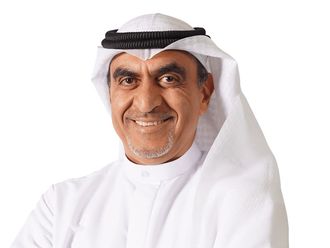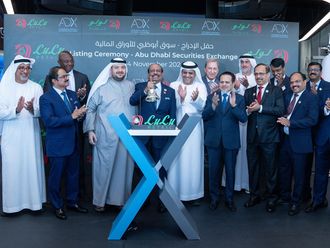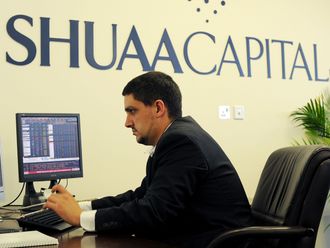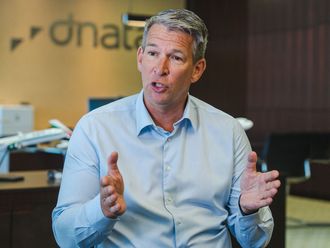Dubai: One of the reality checks of Islamic finance, beyond the award winners, is appreciating the work of the ‘grind' warriors of Islamic finance. These people cum institutions are the ‘unsung stars' of this niche market, and they need to be acknowledged.
Bloggers
There is much ‘cut and paste' website coverage on Islamic finance, hence, same ‘news' repeated on different venues. The need of the hour is analysis of the news and developments, including how conventional ‘instruments and policies,' impact Islamic finance. If one is to take credence of critics saying much of Islamic finance is conventional products around an Islamic wrapper, then inclusion of conventional macro-economic date/rates/policies is a must.
Bloggers, even with their limited resources and often one-person shops, in the Islamic finance place have done a commendable job on providing both coverage and analysis. The good work of Islamic Finance Resources, Shariah Risk Dot Org, IBFNet, Islamic finance group LinkedIn, and Islamic Finance Google group is acknowledged.
[Open challenge to bloggers: how can Islamic fin-ance, especially at consumer retail, take advantage of the social networking phenomenon for awareness, education, and greater market penetration?]
Furthermore, there is only a small minority of real journalists who have played the role of the ‘conscious' of Islamic finance over the last 15 years. But only one journalist comes to mind, Mushtak Parker, and all of us in Islamic finance have been criticised by him via "Mushtak speak," but "it's all good."
Champions
There are community based champions of Islamic finance residing in many non-Muslim countries, and they have great passion for Islamic finance via "financial dawa".
Their objective is to encourage a level playing (tax and regulatory) field for the Islamic finance option, on investing, financing or insurance, for Muslims and non-Muslims in their home countries.
These dedicated people, often working on a shoe-string budget, have not only the challenges of educating the home country regulators and the local populace within a push back politically charged environment, but also we see them attending and/or presenting, at Islamic finance conferences in the UK/EU, GCC and Malaysia/Singapore.
We acknowledge institutions like US-based entities like American Finance House, IdealRatings, Devon Bank, and Guidance Residential, Canada's UM Financial, Italy's Assaif, Sri Lanka's Amana Finance, India's Bearys Amanah, UK's IIBI and apologies to those left out inadvertently.
In addition to institutions, there are Islamic finance academics, who do not receive the spotlight of scholars, yet their contribution, via research or constructive criticism, is no less important.
In the US, Mahmoud Al Gamal (Rice University) and Pervez Ahmad (University of North Florida), the UK's Rodney Wilson (Durham University), Malaysia's Prof Balal Shanmugun (Monash University) and others contributed much through their authorship.
Regulators
Regulators are an important stakeholder in Islamic finance as they attempt to level the playing field for Islamic finance
They act as "full disclosure consumer protection advocates," and probably are the most important speakers at conferences, after the keynote.
Due recognition must be accorded to central bank of Bahrain (CBB), Malaysia's Securities Commission, the UK's FSA, State Bank of Pakistan, and DIFC's DFSA
These institutions laid the foundation for Islamic finance within their respective countries and lessons for other countries.
4Fs
Muslim lifestyle market (MLM) encompasses not only Islamic finance, but extends to food (halal) and fashion, put differently, it's a total package of faith, finance, food and fashion.
Islamic finance ($1 trillion, Dh3.67 trillion) is globally recognised, yet halal ($640 billion) has the greatest market penetration amongst the 1.6 billion Muslims, and (Muslim inspired) fashion is an area that can only grow.
For Muslims, Islam is a way of life, yet Islamic fin-ance is only one part, as there is also consumption of food according to proscribed rules and modesty of clothing.
Today, the emphasis has been on Islamic finance, yet halal is actually a demand based industry.
For example, if a Muslim has lost money in Islamic investments (funds), due to a market sell-off or inferior management skills, they may shy away from investments in the near future or become depositors.
However, even in recession/down markets, Muslims will still consume food. They may consume less or purchase generic brands, but probably will not become "vegetarians".
Other entities
Malaysia has done a remarkable job in promoting the halal industry, but due recognition must also be given to entities promoting halal like the UAE's Al Islami, Ghanim Foods' BruneiHalal, and the US's Saffron Road, and information providers like Halalfocus, Dinarstandard, Crescent-Rating, and others.
There are many unsung stars in Islamic finance, and if conference organisers do not recognise them, we acknowledged their contribution.
The writer is the Global Head of Islamic Finance at Thomson Reuters. The views expressed are his own and do not reflect that of his organisation or Gulf News.












